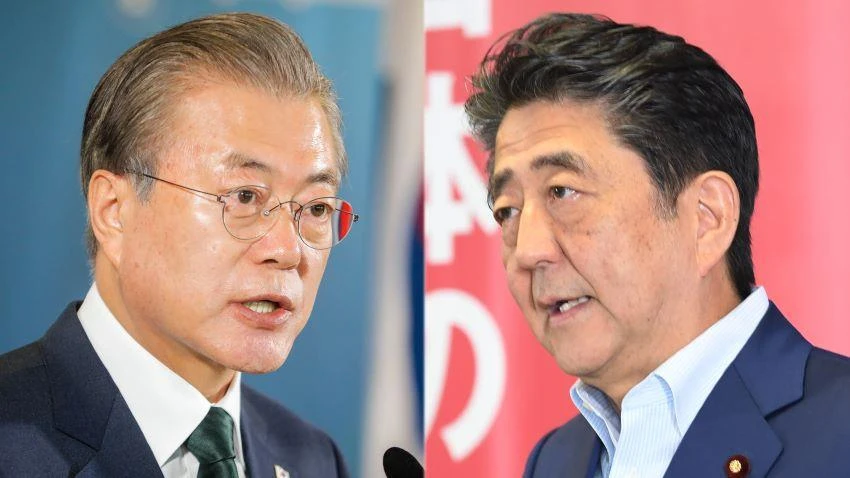
The removal means that South Korea will be stripped of the privileged status that has allowed it to access Japanese goods without going through cumbersome processes. The decision is expected to take effect later this month.
Following the decision, all items except for food and lumber could potentially come under the scope of a Japanese government review when they are exported.
The move follows a decision by Japan on July 4 to tighten controls on exports for three chemicals used in the production of semiconductor products. The move has sparked fears in South Korea that the country's semiconductor makers such as Samsung Electronics and SK Hynix would run out of chemical stockpiles and no longer able to make those products.
Hiroshige Seko, Japan's minister of economy, trade and industry, on Friday announced the government's decision. "It is not a so-called export ban," he said. Companies "can export if [they] manage and go through the procedures properly."
Seko also stressed that South Korea's removal from the white list will only put it on par with other Asian economies such as Taiwan, and should not cause any major problems for South Korean production.
South Korea's presidential Blue House will launch a task force to deal with the issue, a spokesperson said. The government will "handle this firmly," Ko Min-jung said.
South Korean President Moon Jae-in will host an extraordinary cabinet meeting later on Friday to discuss the issue. And Bank of Korea Gov. Lee Ju-yeol is to host a meeting with directors of the central bank to assess the impact on the country's economy and financial markets.
The breakdown in relations was sparked by last year's decisions by the South Korean Supreme Court to award reparations to the country's wartime laborers at Japanese companies during Japanese occupation. The court decisions challenged the understanding that all such claims were already settled "completely and finally" under a 1965 treaty that established diplomatic relations between the two countries.
Tokyo is asking Seoul to abide by the 1965 agreement and has asked for third-party mediation, fearing that the court ruling would open the floodgates for other victims to seek compensation from these and other Japanese companies. Seoul has so far declined to submit to such mediation.
Japan's trade curbs have been met with an anti-Japan movement in South Korea, where shops and consumers have organized campaigns to boycott Japanese products and services, including trips to Japan.
Semiconductors produced in South Korea are used in Chinese- and Japanese-branded smartphones, while displays are used in Apple iPhones and TV sets of various brands. Samsung itself runs assembly operations in countries like Vietnam. New export controls are can be applied to items exported to factories run by South Korean companies in Southeast Asia, China and other parts of Asia.
Any disruption to the production of chips and displays could have far-reaching implications, analysts say.
"The decision ... could weigh on the market and lead to a quick escalation in bilateral tensions," economists at Goldman Sachs said in a report.
The report also noted that uncertainties over supplies from Japan "could weigh somewhat on private investment in Korea in coming years, given that it might not be feasible to develop local substitutes or diversify supply chains meaningfully in the short term."




















